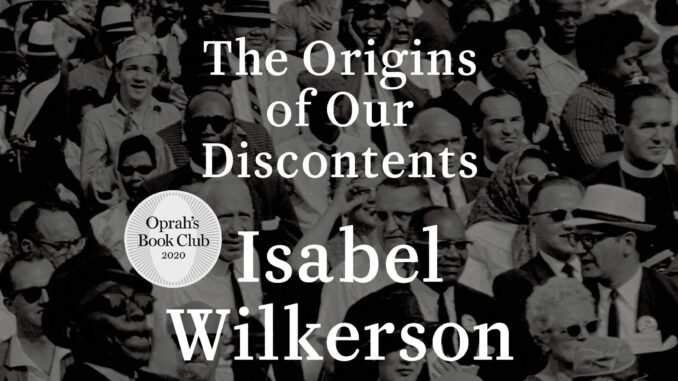
On Feb. 18, Kingston Reads, an organization that aims to spark community conversation about race and racism prompted by recommended books, held their monthly Zoom session. This month’s theme, as a part of Kingston’s Black History Month, was inspired by Isabel Wilkerson’s award-winning book, Caste: The Origins of Our Discontents.
Erica Brown was one of the women in charge of running the event.
“[I] specifically chose to use the term social classifications in the title of this evening’s discussion to bring more folks in because caste is a word that we don’t necessarily use in mass American language and culture,” Brown said.
The meeting started with a moment of meditation, followed by the moderators setting rules to guide the conversation. The organization tried something different with this meeting by sending the participants into separate breakout rooms of three people each, in order to prompt more intimate discussions about the book and its content. After seven minutes, the groups met back to discuss their individual conversations.
One important concept from Wilkerson’s book that a community member discussed was a metaphor for how the caste system built in America.
“I would think of it as the foundation of a house… If that’s not in place your structure is not going to be able to be built from the ground up, is not going to have the strength… They don’t have a choice… they must be in place in order to build up the house,” said an attendee regarding a question asked in a breakout room.
“And if you take that into sort of this country’s terms or economic terms, it’s the same thing that there was when the country began, a certain number of people needed to be identified as being the economic base, I would call them those that we exploit to lay down that that foundation, so that the rest of the economy and the structure everyone else’s livelihoods could be built on top of that,” the attendee said.
In her novel, Wilkerson discusses three major caste systems in the history of humanity: India, Nazi Germany and America. One of the points brought up in the breakout room was the Nazis believing that some of the tactics used in American slavery were too much.
“What was so deep to me was that even the Nazis rejected some of the techniques that were being used in America,” one attendee said. “It was unbelievable that some of the techniques were even too much for them.”
Another attendee was in awe of how rigid the caste system in America is, saying “the Nazis studied our segregation practices and thought that ours were too strict because we said one drop in your blood, you’re black.”
After the seven minutes ran out, the large group met back to discuss the individual conversations. The points made in the groups led to a conversation about the modern day, and how certain societal privileges mirror those of the caste systems.
One participant, Dina Suggs, made the point that BIPOC in America still face equality struggles today. “If you were poor and white before, at least you weren’t black,” she said.
In the final breakout session, one attendee stated “I’m so happy to see a wide variety of people… seeing not only a variety of ages but races, religion, ethnicity, all that stuff, it’s heartwarming.”
The Kingston Reads organization handled these topics with grace, while also encouraging discussion and respectful disagreements in some situations.
Kingston Reads offers these types of programs the third Thursday of every month. Visit kingstonreads.org for more information.
